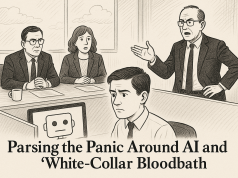In the hallowed halls of research institutions, where the pursuit of knowledge and the drive for innovation are paramount, a silent struggle persists behind the scenes. The battleground of gender dynamics and diversity inequities continues to shape and, at times, constrain the very workforce dedicated to propelling human understanding forward.
As our world becomes increasingly interconnected, it’s impossible to ignore the critical conversations that have sparked across sectors about gender and diversity issues. However, despite the heightened awareness, the research sector still confronts entrenched disparities that hinder its potential. This dialogue is not new, yet its resolution remains a complex and ongoing challenge.
Diving into the heart of the matter, we confront issues such as funding allocation, publication credits, and leadership representation, which are cornerstone elements of a successful research career. Statistics reveal a worrying trend: women and minority groups frequently receive less funding than their counterparts, are underrepresented as lead authors in high-impact publications, and are notably sparse in leadership positions within top research organizations.
The personal anecdotes from researchers who face these hurdles paint a nuanced picture of a landscape riddled with subtle biases and systemic barriers. One researcher told us about the skepticism she faced when leading a project in a predominantly male field, while another spoke about the challenges of securing funding as a minority researcher, despite a robust track record. These stories are not isolated incidents but rather threads in a tapestry of systemic issues that many researchers from underrepresented groups face.
What, then, can research organizations do to address these inequities? Tokenistic measures have proven insufficient—it’s time for concrete actions. Mentorship programs targeting underrepresented groups, transparent criteria for funding and publication credits, and a reevaluation of hiring and promotion practices to remove unconscious biases can be vital first steps. Organizations must not only pledge diversity but actively foster inclusion and equity.
For the research community to embrace change, it must look beyond the surface, redefining what leadership looks like and making space for diverse voices not only to be heard but also to guide decision-making processes. This shift is not just about fairness; it’s about excellence in research. A plethora of studies suggests that diverse teams lead to more innovative solutions and more comprehensive research outcomes.
In sum, the future of innovation hinges on our ability to embrace diverse perspectives. The research community stands at a crossroads between perpetuating historical inequities and trailblazing a new path that values the contributions of all its members. The choice is ours, and the stakes are nothing less than our collective progress.
In the Researchers Club, we pledge to be part of the solution, to share insights and strategies, and to highlight the voices of those navigating the tightrope of the research workplace. Together, we can create a landscape where merit is the only metric that matters, and where every researcher has the opportunity to rise based on their contributions to our shared human endeavor—knowledge.
























